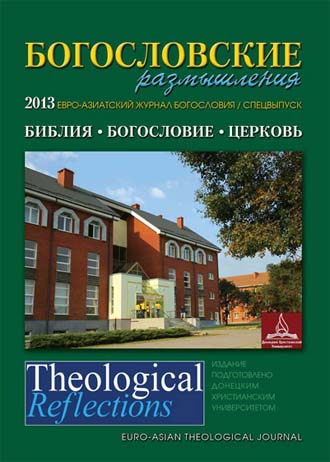The Biblical and Social-Ethical Grounds for a Theology of Peacemaking in Resolving Violent Conflicts
Keywords:
Миротворчество, Насильственные конфликты, Христианская этикаAbstract
This article considers one of the enduring issues of Christian ethics: the question concerning whether it is permissible to engage in armed combat. Addressing the issue from a radical Christian perspective, this article contends that realism, pacifism and just war theory all fail to penetrate to the heart of the issue about the morality of war, and that each of these approaches is unable to provide valid theological or social ethical grounds for a theology of peacemaking. As a way out of the traditional impasse between the advocates of just war, realism and pacifism, this essay draws on the ideas of Glen Stassen and James Wm. McClendon in order to develop a transformative theology of Just Peacemaking that fulfils the biblical requirement of faithfulness and achieves the socialethical necessity of effectiveness.
This article concludes that a theology of peacemaking is indeed justified on socialethical as well as biblical grounds, but proper acknowledgement is given to the fact that this ethical debate is highly complex and that it engages participants at the deepest level of their Christian moral convictions.
Downloads
How to Cite
Issue
Section
License
Copyright (c) 2020 Joshua T. SEARLE

This work is licensed under a Creative Commons Attribution-NonCommercial 4.0 International License.
All articles published in the Journal are distributed under a Creative Commons Attribution-NonCommercial 4.0 International License
By submitting an article for publication in Theological Reflections: Eastern European Journal of Theology the author grants the editors the right to publish the article and distribute it in electronic and print form.
The author reserves all copyrights and the right to use the materials of the article in whole or in part for educational purposes, to write his own dissertations, to prepare abstracts, conference reports, oral presentations, etc., as well as post electronic copies of articles (including the final electronic version downloaded from the journal’s official website) on non-commercial web-resources without the consent of the editorial board and founders.



